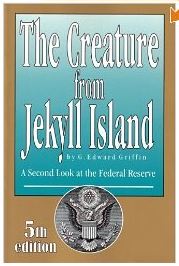submitted by jwithrow.
At Zenconomics we feel like it is extremely important to differentiate wealth from money. Pop culture and mainstream personal finance relentlessly tell us that the two are one in the same but they are mistaken.
The key to differentiating wealth from money is to understand the difference between exchange value and use value. You already implicitly understand this difference but it is not immediately apparent in our culture today.
Money, by nature, holds an exchange value. You can exchange money for goods and services and the quantity of goods and services for which you can exchange money is determined by the value of your money. But this is all that money is good for – serving as a medium of exchange.
Wealth, on the other hand, holds both exchange value and use value.
You can exchange wealth for goods and services and the quantity of goods and services for which you can exchange wealth is determined by the accepted value of your wealth. Wealth in most forms, however, is not as easily exchanged for goods and services and this is precisely why money plays a vital role in a developed economy.
Unlike money, wealth also holds a use value. You can ‘use’ wealth in some capacity. Take real estate for example.
If you own residential real estate then you can either live in the home or you can rent the home out to a tenant to generate income. These actions both utilize use value. Of course, you can also sell real estate for money which utilizes exchange value.
Maybe your real estate consists of farm land which could be used to produce food. Now your real estate, which is wealth if owned outright, can be utilized to produce additional wealth in the form of food. Now your food has both an exchange value and a use value. You can take your fruits and vegetables down to the farmers market and exchange them for money if you want to utilize the exchange value. Or you can eat your fruits and vegetables if you want to utilize their use value.
It is important to point out that an asset must be owned free and clear of an attached debt in order for it to be considered personal wealth.
If you own a home with a big mortgage on it then you are one financial emergency away from losing the home and thus the case could be made that you do not truly own the home yet. This is not to say that taking out a mortgage to buy a property is a bad idea, but be cognizant of the fact that you will need to satisfy the mortgage before the property can truly be considered wealth.
It is also important to point out that some forms of wealth may hold better exchange value than others. A classic car collection may be extremely valuable to the owner but it may be difficult to find a willing buyer if the owner wished to exchange the collection for money in the future.
To reiterate, money is not wealth.
In fact, the only reason to hold money is to use it to purchase desired goods and services. There is no other use for money.
And if you want to maximize your own wealth, you must wisely use money as a tool to acquire wealth.
**For more of Joe’s thoughts on the “Great Reset” and personalized asset allocation please read “The Individual is Rising: 2nd edition” which will be available later this year. Please sign up for the notifications mailing list at http://www.theindividualisrising.com/.

















